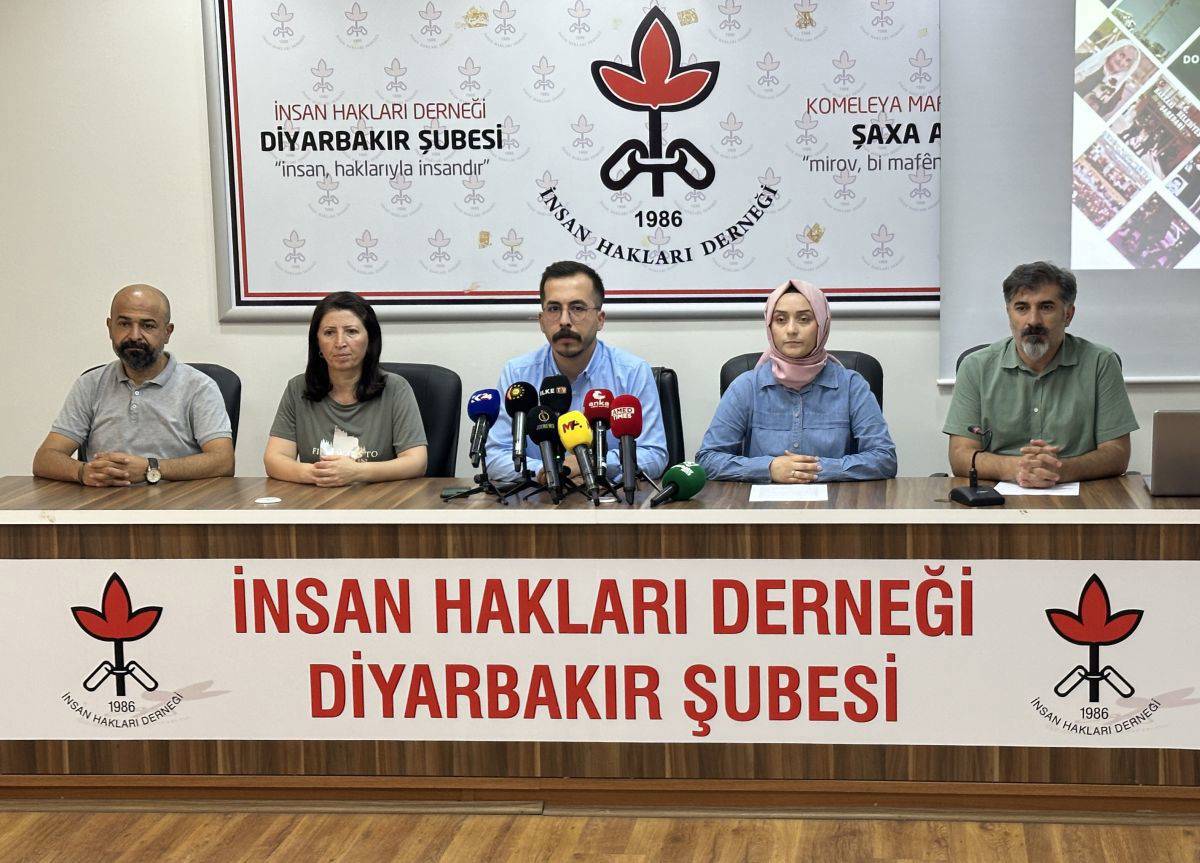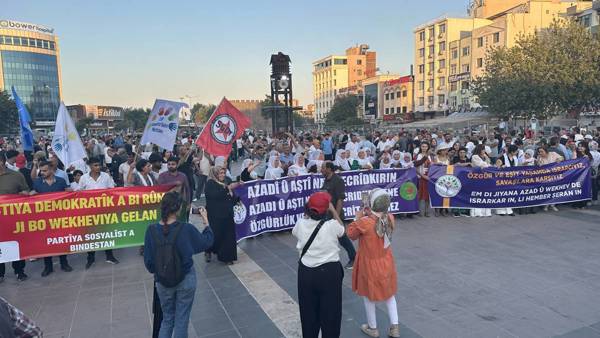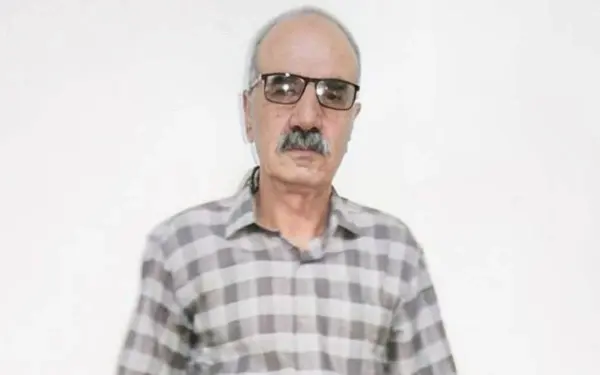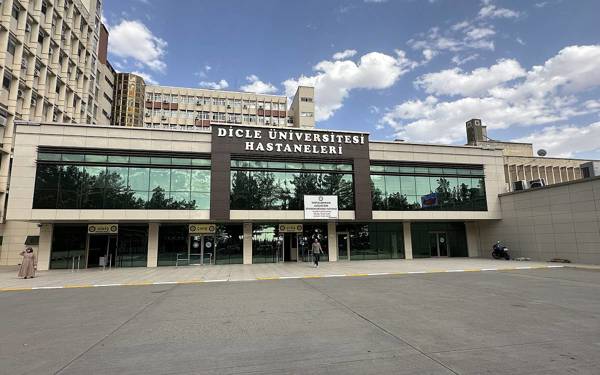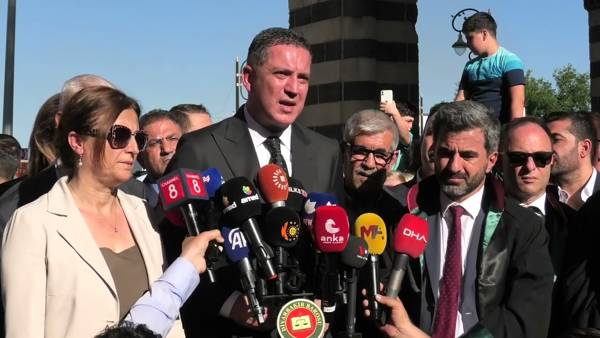The Human Rights Association (İHD) Diyarbakır Branch has released its human rights violations report for the Eastern and Southeastern Anatolia regions, covering the predominantly Kurdish-populated provinces in the country, for the first half of 2024.
At the İHD Diyarbakır branch office, the report was presented by the association’s Regional Representative Mehmet Tahir Saçaklı, with an evaluation by İHD Vice Chair Rümeysa Deniz Kaya.
The report details the following violations:
Violations of the right to life
- In the region, one citizen was killed, and four were injured by law enforcement under allegations of “arbitrary killing, use of firearms, disproportionate force, failure to comply with a stop warning” resulting in extrajudicial execution.
- In regional prisons, three inmates died from illness, and two were reported to have committed suicide.
- At least 18 citizens died, and 76 were injured due to official errors and negligence.
- At least four law enforcement officers died under suspicious circumstances, allegedly by suicide.
- Attacks resulted in the deaths of two political party members and injuries to 25 people. At least five journalists were subjected to verbal and physical assaults while covering news. At least two healthcare workers, one laborer, and one student were injured in physical attacks.
- In regional cities and cross-border conflicts, at least 21 law enforcement officers were killed, and 20 were injured. These conflicts also resulted in the deaths of at least 44 armed militants.
- Explosives and mines left in rural conflict areas killed two citizens (including one child) and injured two others (including one child).
- At least 33 citizens (eight children, 19 women, and six men) died under suspicious circumstances in regional cities.
Violations related to the conflict environment
- Hundreds of areas in five cities and their districts were declared special security zones 21 times.
- A curfew was imposed once in one city.
- The body of at least one militant was not returned to their family, while the bodies of three militants were delayed despite various attempts. One cemetery was attacked.
Violations against women's right to life
- At least 30 women died, and eight were injured due to domestic violence.
- At least 10 women died, and four were injured due to attacks in public spaces. At least one woman was sexually assaulted.
Violations against children's right to life
- At least seven children died due to domestic violence.
- At least two children died, and two were injured due to violence in public spaces.
- At least 15 children were sexually abused in public spaces, and one child was abducted.
Violations of the prohibition of torture
- At least 11 citizens were subjected to torture and ill-treatment in custody, 36 citizens outside of detention centers (streets, home raids), and 48 inmates in prisons.
- At least three citizens were coerced into becoming informants by law enforcement.
Violations of personal freedom and security
- At least 1,164 citizens, including 88 children, were detained in regional cities.
- At least 165 citizens, including four children, were arrested. Three citizens were placed under house arrest.
- At least 527 homes/businesses were raided.
Violations of freedom of thought and expression
- At least four events were banned.
- Investigations were launched against at least 520 citizens in 74 investigation files.
- Cases were opened against 39 citizens in 10 case files.
- Various prison and monetary penalties were imposed on 56 citizens in 13 files involving politicians and journalists.
- Three political party buildings, one newspaper, and one municipal building were attacked or raided.
Violations of freedom of assembly and demonstration
- Law enforcement intervened in at least 34 meetings and demonstrations.
- At least two meetings and demonstrations were canceled by governors and district governors.
- Governors issued 56 bans on meetings and demonstrations.
Violations in prisons
- At least 44 inmates were transferred to other prisons without justification or against their will.
- At least 116 inmates’ right to healthcare and one inmate’s right to family visits were violated.
- Investigations were launched against 65 inmates, and four were given disciplinary punishments.
- Seven inmates were subjected to solitary confinement.
- The executions of 22 inmates were postponed for various reasons (not appearing before the board, disciplinary punishment, not showing remorse, not attending ceremonies on religious and national holidays).
Violations of economic and social rights
- At least 29 workers died, and 20 workers (including one child) were injured in workplace accidents due to unsafe working conditions.
- At least one person was dismissed, and at least three were subjected to administrative investigation and exiled.
Trustee appointments
- A trustee was appointed to one municipality in the region. Administrative investigations were initiated against four municipalities.
- The passports of at least nine co-mayors were subjected to “general security” measures at the request of the General Directorate of Security. An investigation was launched against one co-mayor for insulting the president.
Violations of the right to health
- The right to health of at least 416 citizens was violated.
Violations of environmental rights
- At least five forest fires and tree cuttings occurred in the region.
- The right to housing of at least one citizen was violated.
"Violations continued intensively and systematically"
İHD Vice Chair Rümeysa Deniz Kaya stated that human rights violations continued intensively and systematically in the Eastern and Southeastern Anatolia regions in the first half of 2024 due to authoritarian policies.
Kaya noted that many citizens were deprived of their economic and social rights due to their opposition identity and continued:
“In the first six months of 2024, preventable deaths have seen a significant increase in our region. The violations of the right to life caused by the ongoing conflict environment due to the unresolved Kurdish issue also continue with all their severity.
Violations in prisons have also continued to increase. Many rights violations such as ongoing isolation and solitary confinement, violations of the prohibition of torture and ill-treatment, transfers/exiles, hindrance of the right to receive and impart information, extension/burning of executions, hindrance of the right to healthcare, and violations of the right to life have been frequently observed in prisons. It has been repeatedly determined by us that public officials responsible for these violations have not undergone effective administrative and judicial investigations or, as a result of the impunity policy, have not received any punishment or the punishments given have not prevented the recurrence of these violations.”
(İY/AS/VK)




.jpg)

